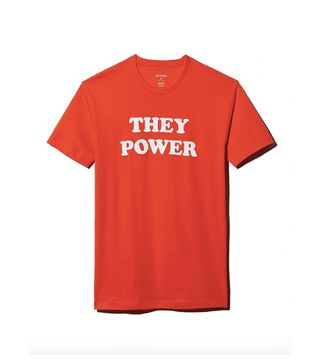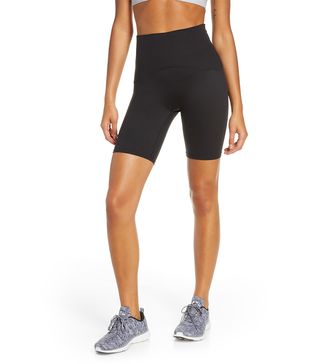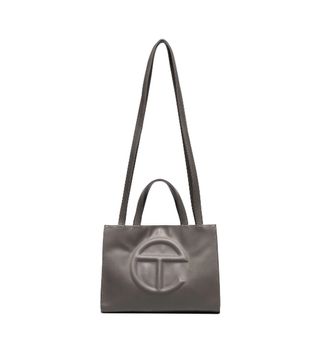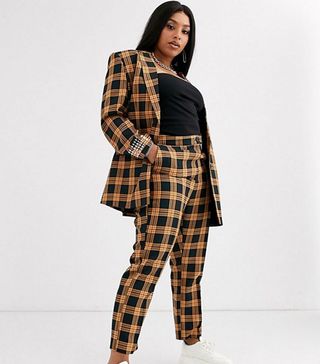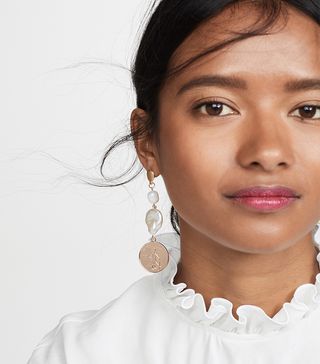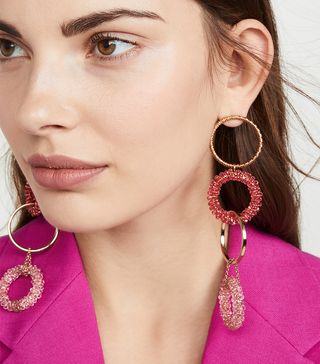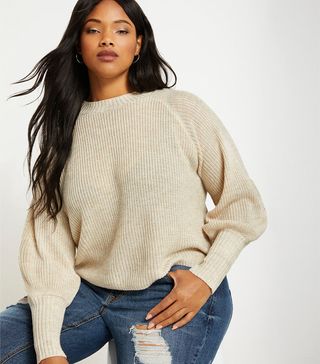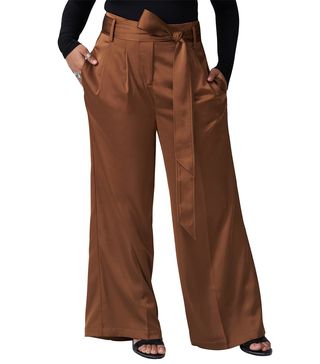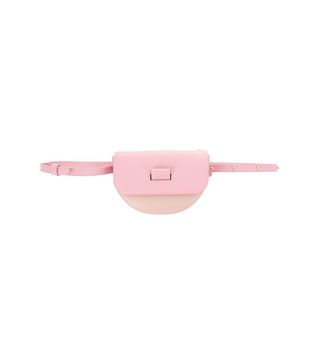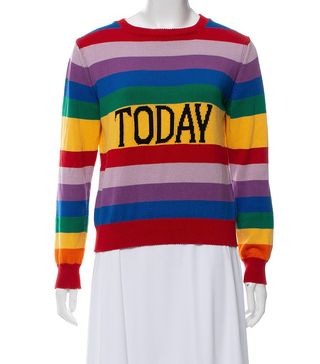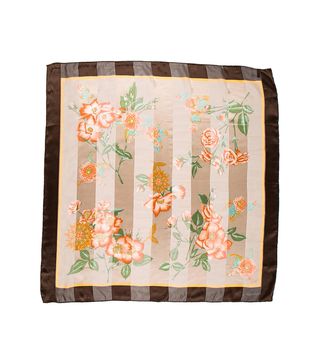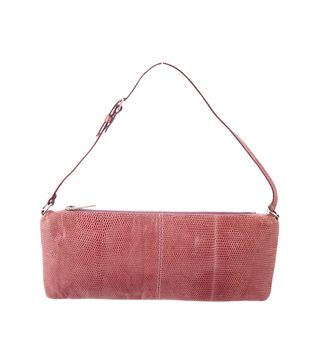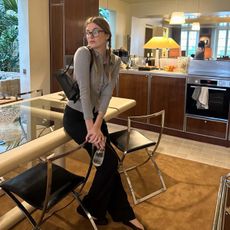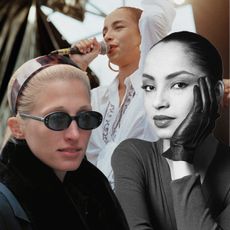6 Transgender Models Talk Activism, Identity, and Style
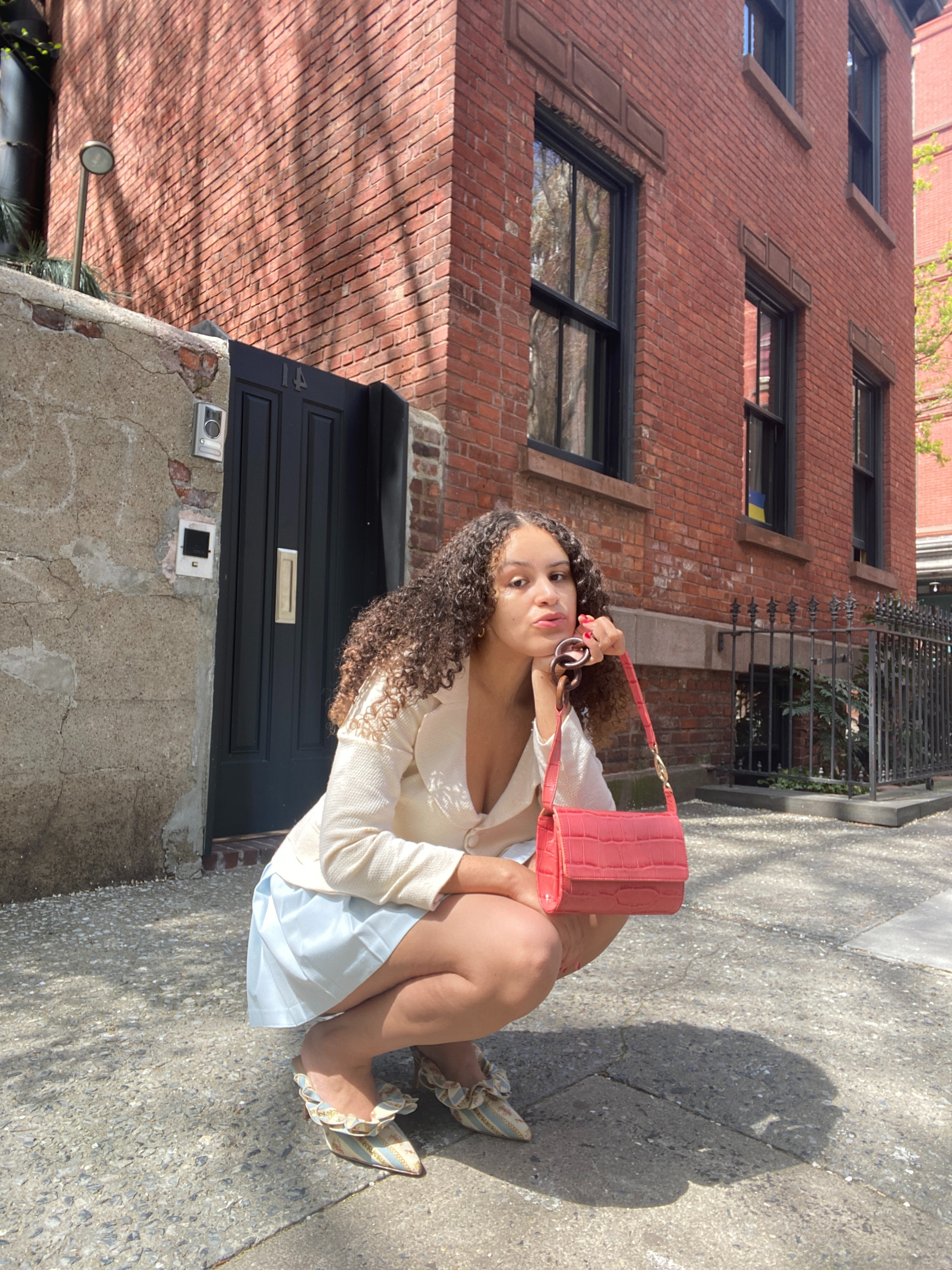
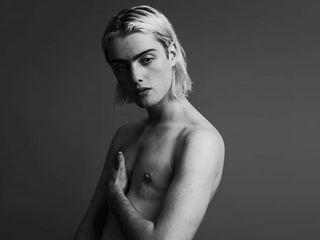
)
It has been scientifically proven that people form judgments about others based on their appearance within less than a second. Despite the fact that society has laws in place to fight discrimination, the truth is that marginalized groups always have to worry about how we are perceived. Things that are out of our control like gender and skin color are the basis on which we are often judged. Even worse, the things we can choose, like opting to wear a hoodie or a miniskirt, can be weaponized against us.
Sometimes, however, solace can be found through fashion. It’s no coincidence that style is the lens in which many, including the transgender community, are first able to explore and express their true identity. So in honor of that exploration, we spoke with six transgender activists and models about their style evolutions, what fashion means on a personal level, and where they enjoy shopping. Although Trans Awareness Week has passed, we implore you read on because transgender style and stories aren't limited to one week—this is a year-round type of thing.
Alok Vaid-Menon
What has your experience as a trans model in the fashion industry been like? And what do you wish would change within the industry?
The fashion industry is structured by the gender binary with "men's fashion" and "women's fashion." When gender-variant people are considered for castings, it's often people who are white, hairless, and palatably androgynous. Few brands are willing to actually feature bodies like mine that have been historically underrepresented and when we are, we are often tokenized. Rather than waiting to be included, I've spent the bulk of my career doing it on my own—designing and modeling in my own gender-neutral fashion collections. It is my dream that the industry will recognize that gender-neutral is the only way forward. Not only is it a regressive and outmoded way of thinking, but dividing fashion into gender lines is holding us back from truly innovative beauty and design.
How has your identity and experience impacted the way you approach your personal style?
Growing up there were so many stereotypes put on me as someone who was Indian and assigned male at birth. It felt like I was being put in a straitjacket—people prioritize their preconceived notions of me over my actual personhood. Style became a way to interrupt other people's assumptions and declare myself on my own terms. Style was and continues to be a way that I reclaim my Indian culture and my trans femininity, two parts of myself that I was taught early on to feel shame around.
"I don't have the privilege of diminishing the importance of style. My reality drastically shifts if I go outside wearing a dress versus going outside and wearing pants."
For many, style is frivolous and not serious. What would you say to anyone who doubts the importance of style, both in gender expression and politics?
When people see someone like me—brown, bearded, and in a dress—I'm challenging so much of what they've been taught about gender, race, and so much more. Politics has a hierarchy that places speech and text over images. This has to be challenged. The production of images that challenge, inspire, nourish—this is my work as an artist. Style allows my critiques, stories, and ideas to travel in ways words never could. There are so many things people don't want to talk about what they need to confront. Style creates the capacity for these cultural shifts.
What does trans awareness mean to you? And what do you hope for the future of fashion?
The statistic is that only a quarter of people report knowing an openly trans person. So often, misconceptions of our lives and stories that cis people tell about us get more circulation than our actual narratives and experiences. Trans awareness is about centering the ideas, leadership, and innovation of trans and nonbinary creatives—people who across the board are facing extreme repression and backlash simply for existing. Awareness is the first step. Then it needs to go to action. We need to actively support the livelihood and careers of trans people in every dimension. My hope is that fashion will center the leadership and expertise of trans creatives. So often we are the mood boards, and so rarely are we the models. People are inspired by us but never hire us. It's our time and it's time for the fashion world to catch up, darling!
Where do you love to shop? And what’s the one piece of clothing that’s currently in your cart?
I love secondhand shopping. I also love supporting gender-neutral brands like Phluid Project and Syro. Recently I have been ordering so many high-waist spandex biker shorts. The more patterns the better—I can't get enough!
Fatima Jamal
What has your experience as a trans model in the fashion industry been like? And what do you wish would change within the industry?
My experience as a trans model is interesting. Beyond the transness, I would say that it is complicated by being plus-size. I've been told that I'm very niche and will only book trans-specific work, which, in my opinion, lacks imagination and is super limiting. But I get it, considering that the history of the fashion industry is fraught with many complications and biases. I'm not supposed to be at home in my body. I should want to lose weight, work out, and starve myself to be a certain size to both fit in garments and also be of good moral standing.
Can you as a designer shape a garment for any body size and it must be appealing and chic? More fat people in high fashion, that's what I want to see.
"I'm not at all pleased by trans or fat models being used as diversity and inclusion metrics and business goals for brands to fare along in today's society. I'm interested in an ethic that considers what it means to fashion garments that could make anyone feel their best, no matter their body size."
For many, style is frivolous and not serious. What would you say to anyone who doubts the importance of style, both in gender expression and politics?
Style as a serious matter is subjective. Not everyone values it as an important thing, even though it may play a part in their lives. Style, like speaking, is a way to voice who we are and what we believe we represent. It’s an attitude. The way we style ourselves—be it for church, school, a fashion show, or the protest—is an argument for personal power and dignity. Style is not everyone’s everything, but for some of us, it is the way we speak.
Where do you love to shop?
I mostly buy clothing from fast-fashion sites like Eloquii, ASOS, and Fashion Nova. But I also have pieces from designers I have worked with like Telfar and Random Identities.
Tzef Montana
What has your experience as a trans model in the fashion industry been like? And what do you wish would change within the industry?
I started modeling because participating in trans visibility gave me a sense of purpose. And although I've felt empowered by everything that was happening with my career in the U.S., modeling left me questioning a lot about the validity of these things. Especially when it comes to subjects like sexuality and identity. As a model, you don't have control over the messages that are communicated until they get published. You are asked to embody roles on set catering to other people's fantasies, usually the photographer or client. This was uncomfortable for me every time.
With a cultural agenda that cares about actually improving our socials lives, my modeling experience would have felt way more purposeful.
"I do not wish to subscribe to political campaigns that benefit from highly trending topics and showcase me as a social experiment. Even if such efforts sometimes may appear progressive in theory, in practice, they have not proven to be helpful or even sustainable to my everyday life. When it comes to projects about transness, for example, I wish brands would hire people like me not just to model but to write, produce, or direct as well."
How has your identity and experience impacted the way you approach your personal style?
My style reveals a lot about me and has always given me a sense of identity, so yes, I think one definitely impacts the other.
Where do you love to shop? And what’s the one piece of clothing that’s currently in your cart?
I'm constantly on the hunt for earrings. I love visiting the family-owned stores in my hometown in Greece, Corinth. Their buyers truly know what the modern Mediterranean girl wants, so this makes it a lot easier.
Jari Jones
What has your experience as a trans model in the fashion industry been like? And what do you wish would change within the industry?
As a trans model in the fashion industry, I found my experience to be both difficult and rewarding. Getting into those big casting rooms is a job in itself. There is already a high level of scrutiny on your body because you are a model, but multiply that with all intersections on top—being that I'm a Black, darker-skinned, plus-size trans model, most of the industry says I'm not going to make it into the room before I have even stepped inside. That's what I want to change; the perception that someone like me is, in fact, worthy of being in editorial magazines and on runways and national commercials, that someone like me is something aspirational.
What’s the one piece of advice you wish someone would have given you on your journey?
I wish someone would have told me that there is power in saying no. The industry and society have told me that because I'm trans in this industry, I must accept everything and anything folks give to me or try to do with me, regardless if I felt uncomfortable with what they were asking of me. Now I know that I'm allowed to say no and that it won't change my values.
How has your identity and experience impacted the way you approach your personal style?
My whole life I’ve been fighting to be free of a construct—especially the one held up in the fashion world that says style was meant for one gender. Yes, I may identify fully as a woman, but fashion has no gender; clothes and garments are just clothes and garments. They belong to everyone.
Where do you love to shop?
I am trying these days to have an exclusive closet of brands that carry mostly or only plus-size and are inclusive in their advertisement of all genders and body shapes. I love Universal Standard, Eloquii, and Chromat, all brands that showcase so many different body types but never dull their designs just to be inclusive.
Casil McArthur
How has your identity and experience impacted the way you approach your personal style?
Transitioning has personally given me the complete freedom to explore and create myself. I am no longer scared to enjoy what is considered "feminine" to our society. I have the peace to fully embrace and love all those aspects of myself. Makeup, dresses, high heels—men deserve to enjoy, to feel, and to be appreciated as beautiful in these wonderful things. I finally can be the male princess I've always dreamed of being.
Do you use style as a way to empower yourself and others? And if so, what do you want your personal style to say to the world?
Absolutely, I feel the BEST when I dress myself to the nines, and it is immensely important for me to use my style as a beacon of support and encouragement for anyone looking at me. It can be intimidating, being an effeminate, visibly queer man in public. But I will not let that deter me from being who I want to be, and I hope I can empower others to take away some of the hesitance they may have in being themselves. Just be yourself and be who you want to see in the world.
For many, style is frivolous and not serious. What would you say to anyone who doubts the importance of style, both in gender expression and politics?
Style is a statement. Style is activism. It's that simple. It doesn't have to be that way for you. But it is for some.
What does trans awareness mean to you?
It means to embrace, love, empower, protect, support, speak up, and be there for the trans individuals around you. It means to protect trans women of color. It means you need to learn to stop hurting, assaulting, and killing trans people. Instead, educate yourself to a more understanding place where you do not feel the need to act out in violence against it. It means it's time to try and understand if you haven't yet. It means that we deserve a chance too.
Where do you love to shop? And what’s the one piece of clothing that’s currently in your cart?
Generally, thrift or vintage stores. I normally buy dresses or funky sweaters, pretty flowy tops, and I like to collect pink-colored items. I'm bad at buying pants.
Teddy Quinlivan
What do you wish would change within the fashion industry?
I think the industry still needs to make progress in terms of holding abusive people accountable for their actions and not using creativity as an excuse for inappropriate behavior. Being in a creative industry doesn’t mean you can put your hands on someone without their permission. And I found that during the fashion industry’s #MeToo movement, a lot of people came to the defense of these sexual predators. But just because we’re models doesn’t mean we’re not human; our safety and security on set is important too.
What does trans awareness mean to you?
For me, this past week and every week are about raising awareness around trans stories and issues and people and elevating us as a community. It’s really important to share our stories but to do so throughout the year.
"Trans awareness isn't just a weeklong thing for me—I live my life as trans 365 days of the year. I’m not just relevant during Pride Month or Trans Awareness Week. My issues, and the issues that impact the transgender community, affect us on a daily basis."
How has your identity and experience impacted the way you approach your personal style?
For me, I have always seen clothing as this form of escapism. Fashion has always allowed me to transform myself into the person I want to be. When I was transitioning, it was the way I indicated to the world that I was female. So, for me, clothing has always been an extremely powerful tool for self-expression.
For many, style is frivolous and not serious. What would you say to anyone who doubts the importance of style, both in gender expression and politics?
Well, I would say that fashion is frivolous, but I don’t necessarily think that it is a bad thing to indulge in the pleasures of dressing beautifully. Is it a necessity? Absolutely not. We could all be walking around in uniforms, but how shitty would the world be? Sure it would be less frivolous, but it wouldn't look as beautiful, and we wouldn’t be able to express our individuality. So yes, I would make the argument that fashion is frivolous, but it’s okay to be frivolous just like in the way we all enjoy beautiful art or cars or homes—it’s okay to indulge in the fantasy. I think that’s what fashion is about—it’s about positively embracing the frivolity.
But clothing can also be deeply political, and the way you dress has social implications. The way you dress is a signal to the world of who you are and what you represent. Whether you’re wearing the hijab—as a religious garment and the social implications of traveling in the West while wearing it—or whether you're a transgender kid and you’re not necessarily the most passable and you’re wearing feminine clothing in public. Clothing toes the line between profound and fun.
Where do you love to shop? And what’s the one piece of clothing that’s currently in your cart?
I love to shop on The RealReal and eBay and Vestiaire Collective. It’s great to be able to recycle these beautiful clothes and not have them end up in a landfill. I love the idea of repurposing fashion because it’s significantly more sustainable and affordable. Plus I’ve been going through a Versace phase, so I’ve been looking for iconic silk pieces.
Next: 10 Designers Speak Candidly on Why the Industry Is Plus-Averse

Jasmine Fox-Suliaman is a fashion editor living in New York City. What began as a hobby (blogging on Tumblr) transformed into a career dedicated to storytelling through various forms of digital media. She started her career at the print publication 303 Magazine, where she wrote stories, helped produce photo shoots, and planned Denver Fashion Week. After moving to Los Angeles, she worked as MyDomaine's social media editor until she was promoted to work across all of Clique's publications (MyDomaine, Byrdie, and Who What Wear) as the community manager. Over the past few years, Jasmine has worked on Who What Wear's editorial team, using her extensive background to champion rising BIPOC designers, weigh in on viral trends, and profile stars such as Janet Mock and Victoria Monét. She is especially interested in exploring how art, fashion, and pop culture intersect online and IRL.
-
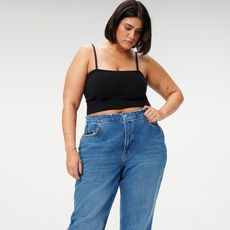 I Just Found 26 Pretty Items From Women-Owned Brands That Go Up to At Least A 3X
I Just Found 26 Pretty Items From Women-Owned Brands That Go Up to At Least A 3XShop stunning picks for everybody.
By Chichi Offor
-
 I'm Saving This '90s Supermodel's Airport Looks for All My Travel Days in 2024
I'm Saving This '90s Supermodel's Airport Looks for All My Travel Days in 2024Each one is comfortable and super chic.
By Jennifer Camp Forbes
-
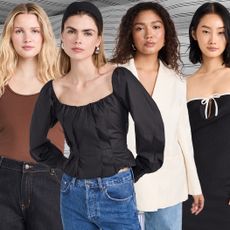 I'm a Fashion Editor—I Shop This Affordable Brand First When I Head to Shopbop
I'm a Fashion Editor—I Shop This Affordable Brand First When I Head to ShopbopThese (mostly) under-$100 pieces look designer.
By Jennifer Camp Forbes
-
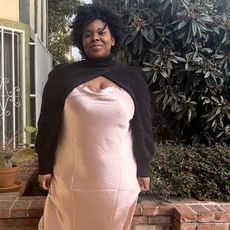 I'm a Plus-Size Fashion Editor—These 28 Styles Are on My Spring Wish List
I'm a Plus-Size Fashion Editor—These 28 Styles Are on My Spring Wish ListI want all of these ASAP.
By Chichi Offor
-
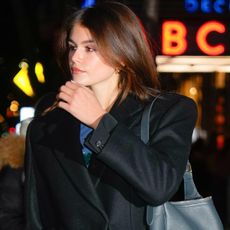 Kaia Gerber Wore the Timeless Heel Trend That French Girls Swear By
Kaia Gerber Wore the Timeless Heel Trend That French Girls Swear ByIt goes with everything.
By Eliza Huber
-
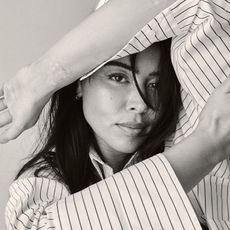 Lauren Chan's Collaboration With Universal Standard Is Redefining Luxury
Lauren Chan's Collaboration With Universal Standard Is Redefining Luxury"People look like they feel powerful in these garments."
By Ana Escalante
-
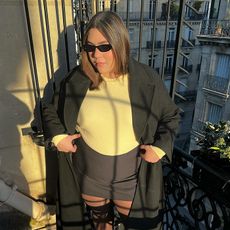 Anthropologie Is Carrying Plus-Sizes Now, and You Need to See These Chic Finds
Anthropologie Is Carrying Plus-Sizes Now, and You Need to See These Chic FindsRun—don't walk—to get these.
By Ana Escalante
-
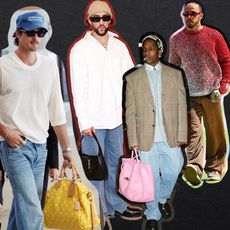 Celebrity Men Wearing Handbags Was the Cultural Reset I Didn't Know I Needed
Celebrity Men Wearing Handbags Was the Cultural Reset I Didn't Know I NeededIt bags, It boys.
By Jasmine Fox-Suliaman
